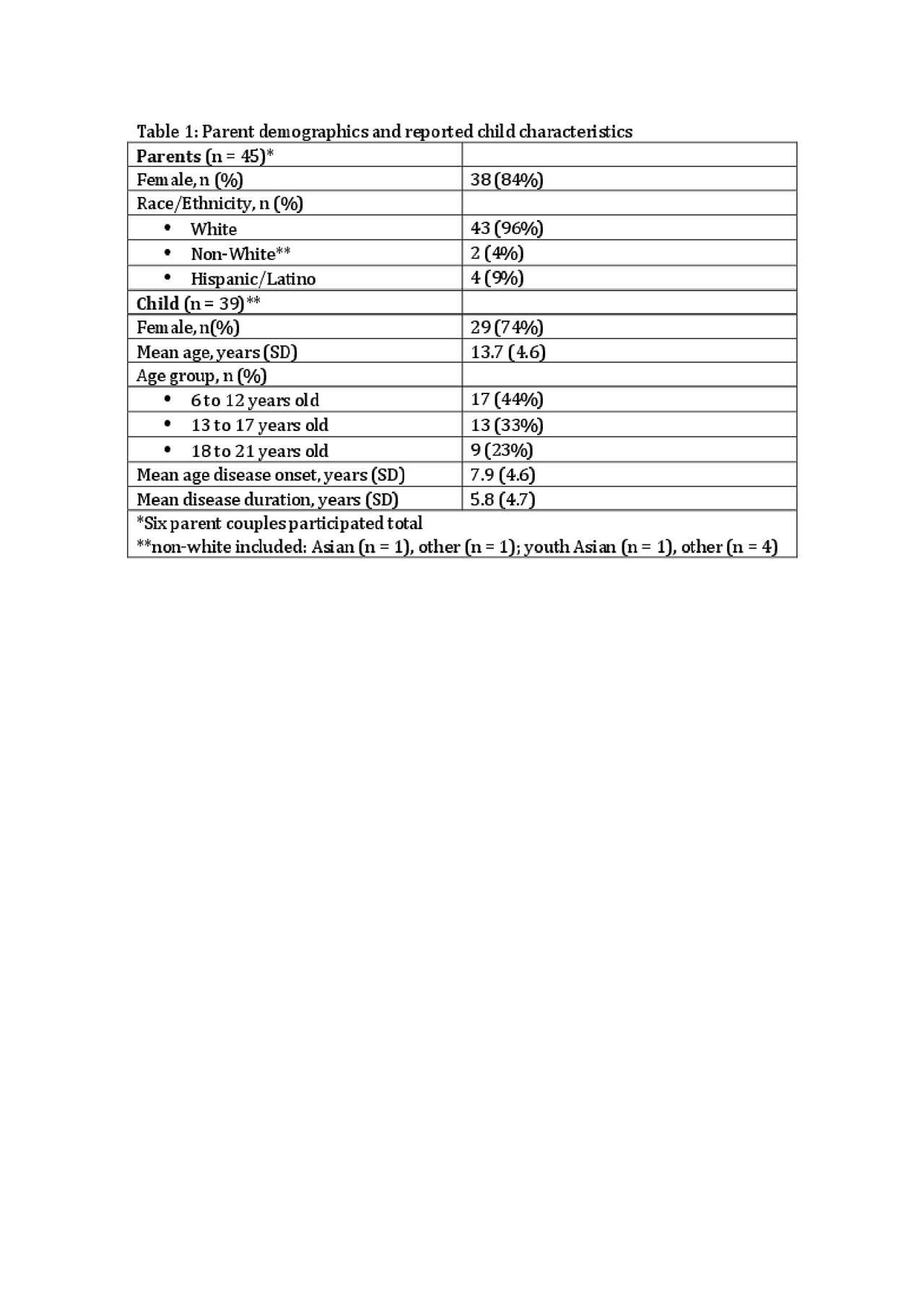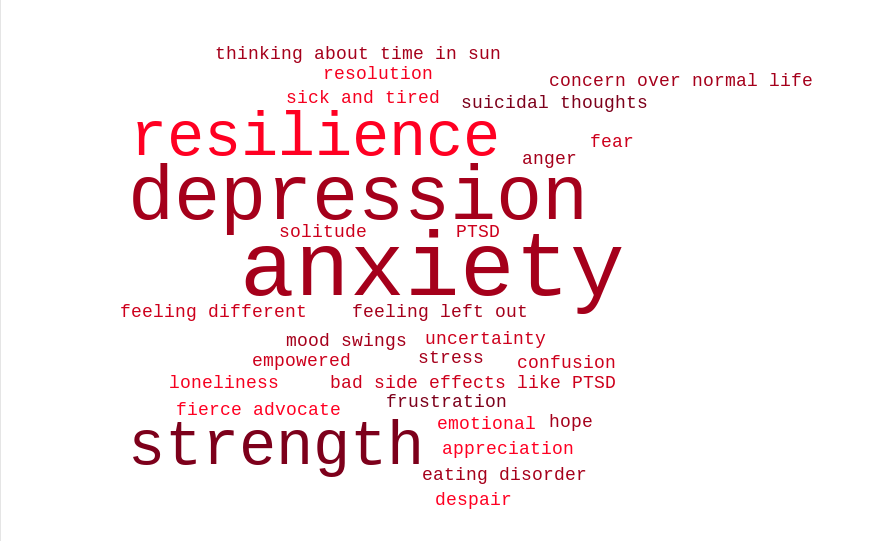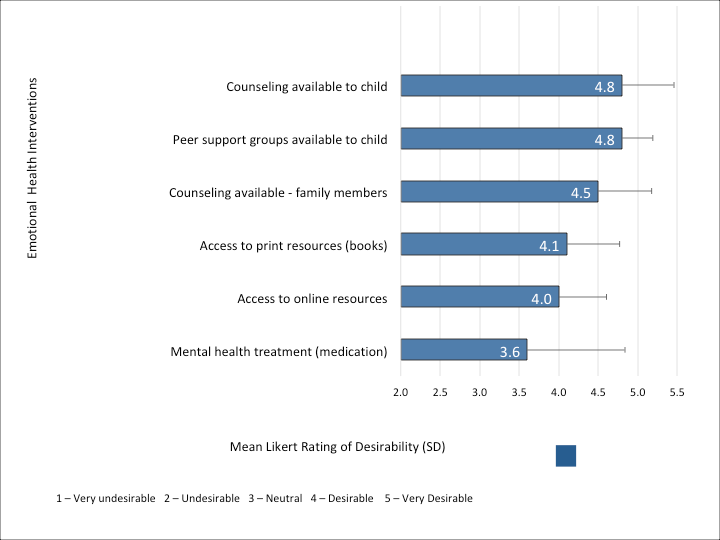Session Information
Date: Tuesday, November 12, 2019
Title: Patient Outcomes, Preferences, & Attitudes Poster II: Patient Preferences, Beliefs, & Experiences
Session Type: Poster Session (Tuesday)
Session Time: 9:00AM-11:00AM
Background/Purpose: While juvenile myositis (JM) can negatively affect quality of life, studies of the emotional health needs of youth with JM are limited. We examined parent perspectives on emotional health needs and interventions for youth with JM.
Methods: Six focus groups (60 minutes each, audio-recorded, transcribed verbatim) of parents of youth ages 6-21 years old with JM were conducted at the 2018 CureJM National Family Conference. Parents were grouped by their child’s age (6-12yo, 13-17yo, 18-21yo), with 2 focus groups per age range. Note takers in each focus group assisted with documentation of nonverbal cues by participants. At the start of each focus group, parents listed 3 words/phrases encapsulating JM-related emotional health challenges, which were then discussed in detail. Screening approaches and desired interventions were discussed. Using an a priori coding scheme, interview transcripts were independently coded using the constant comparison method and Dedoose software, with subanalysis by age group. Preference for emotional health interventions was also assessed via Likert scale (1 = very undesirable, 5 = very desirable). The study was approved by Children’s Hospital of Philadelphia Institutional Review Board (IRB 18-015225).
Results: Demographics are shown in Table 1. Parents commonly reported depression/anxiety as challenges, though strength/resiliency also emerged especially in older groups (Figure 1). Themes from the focus groups related to emotional challenges included impact of JM diagnosis, impact of JM on siblings/family dynamic, resiliency, and parental emotional health. Themes related to screening/intervention included perceptions that youth with JM may not always openly report distress, barriers to treatment (e.g. lack of access), desired interventions (e.g. technological modalities, peer support), and the role providers play in eliciting a history of emotional distress and providing access to emotional health resources. Parents strongly desired counseling and peer support groups for their children with JM (Figure 2).
Conclusion: Youth with JM and their family members experience substantial emotional challenges, with limited access to interventions. Resiliency in older age groups suggests coping may occur over time. Further studies should assess youth perspectives on emotional health in JM, as well as preferences for and efficacy of interventions.

ACR2019-JM-EmotHlth-FocusGroup-Abstract-2019-06-02-FINAL-TABLEONLY
To cite this abstract in AMA style:
Ardalan K, Adeyemi O, Wahezi D, Caliendo A, Curran M, Neely J, Kim S, Correll C, Brunner E, Knight A. Parent Perspectives on Addressing Emotional Health for Youth with Juvenile Myositis: A Qualitative Focus Group Study [abstract]. Arthritis Rheumatol. 2019; 71 (suppl 10). https://acrabstracts.org/abstract/parent-perspectives-on-addressing-emotional-health-for-youth-with-juvenile-myositis-a-qualitative-focus-group-study/. Accessed .« Back to 2019 ACR/ARP Annual Meeting
ACR Meeting Abstracts - https://acrabstracts.org/abstract/parent-perspectives-on-addressing-emotional-health-for-youth-with-juvenile-myositis-a-qualitative-focus-group-study/


